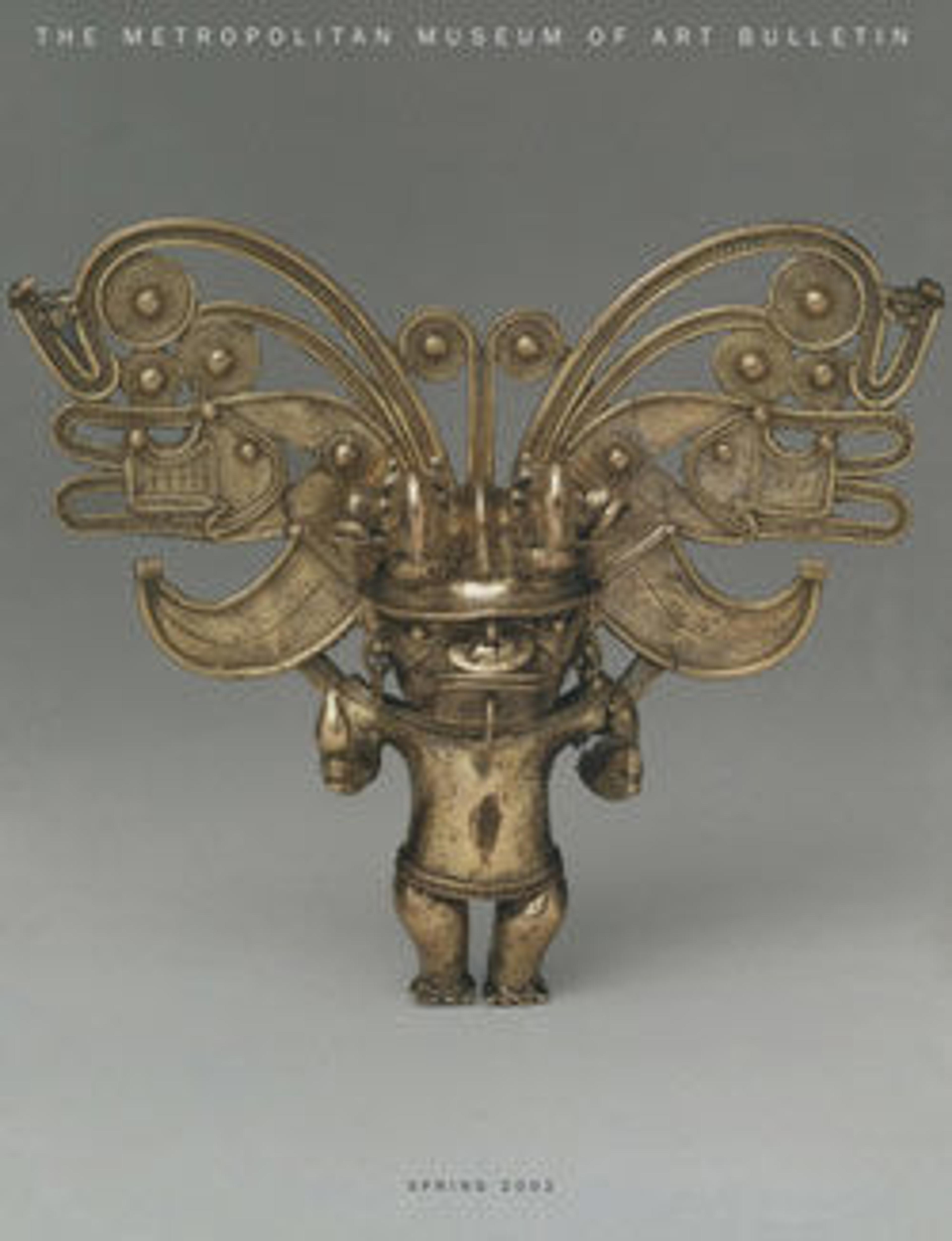Female Figure (tunjo)
Muisca votive objects, called tunjos, were made in a variety of forms: animate, that is, human figures and animals, and inanimate–weapons, lime containers, and snuff tablets. Human images, always differentiated by sex, are the most common type of tunjo. Most are simple, flat plaques with a great deal of specific detail added onto the surface, as thin gold threads. The figures depict actual Muisca people and activities, for instance, mothers holding children, as on this example. Male figures carry weapons or chew coca. Quality of workmanship and realistic proportions were of less concern to tunjo makers than subject matter.
This tunjo depicts a female figure holding a smaller one, possibly a child, in one hand and a baton on the other. A long, multistrand necklace is on her chest and a prominent disk-shaped pectoral under her chin. Her small feet, worked as a series of fine gold threads, appear in the upper half of the tall plaque.
Tunjos were buried in groups or thrown into lakes. They occur only rarely in tombs.
This tunjo depicts a female figure holding a smaller one, possibly a child, in one hand and a baton on the other. A long, multistrand necklace is on her chest and a prominent disk-shaped pectoral under her chin. Her small feet, worked as a series of fine gold threads, appear in the upper half of the tall plaque.
Tunjos were buried in groups or thrown into lakes. They occur only rarely in tombs.
Artwork Details
- Title: Female Figure (tunjo)
- Date: 10th–16th century
- Geography: Colombia
- Culture: Muisca
- Medium: Gold
- Dimensions: H. 7 3/4 x W. 1 1/8 x D. 1/8 in. (19.7 x 2.8 x 0.3cm)
- Classification: Metal-Sculpture
- Credit Line: The Michael C. Rockefeller Memorial Collection, Bequest of Nelson A. Rockefeller, 1979
- Object Number: 1979.206.1050
- Curatorial Department: The Michael C. Rockefeller Wing
More Artwork
Research Resources
The Met provides unparalleled resources for research and welcomes an international community of students and scholars. The Met's Open Access API is where creators and researchers can connect to the The Met collection. Open Access data and public domain images are available for unrestricted commercial and noncommercial use without permission or fee.
To request images under copyright and other restrictions, please use this Image Request form.
Feedback
We continue to research and examine historical and cultural context for objects in The Met collection. If you have comments or questions about this object record, please contact us using the form below. The Museum looks forward to receiving your comments.
